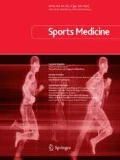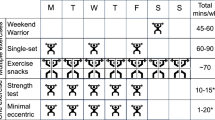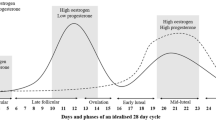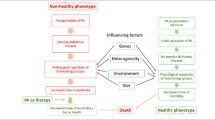Abstract
Objective
The aim was to quantify the proportion of the literature on caffeine supplementation that reports habitual caffeine consumption, and determine the influence of habitual consumption on the acute exercise response to caffeine supplementation, using a systematic review and meta-analytic approach.
Methods
Three databases were searched, and articles screened according to inclusion/exclusion criteria. Three-level meta-analyses and meta-regression models were used to investigate the influence of habitual caffeine consumption on caffeine’s overall ergogenic effect and within different exercise types (endurance, power, strength), in men and women, and in trained and untrained individuals. Sub-analyses were performed according to the following: acute relative dose (< 3, 3–6, > 6 mg/kg body mass [BM]); whether the acute caffeine dose provided was lower or higher than the mean daily caffeine dose; and the caffeine withdrawal period prior to the intervention (< 24, 24–48, > 48 h).
Results
Sixty caffeine studies included sufficient information on habitual consumption to be included in the meta-analysis. A positive overall effect of caffeine was shown in comparison to placebo (standard mean difference [SMD] = 0.25, 95% confidence interval [CI] 0.20–0.30; p < 0.001) with no influence of relative habitual caffeine consumption (p = 0.59). Subgroup analyses showed a significant ergogenic effect when the caffeine dose was < 3 mg/kg BM (SMD = 0.26, 95% CI 0.12–0.40; p = 0.003) and 3–6 mg/kg BM (SMD = 0.26, 95% CI 0.21–0.32; p < 0.0001), but not > 6 mg/kg BM (SMD = 0.11, 95% CI − 0.07 to 0.30; p = 0.23); when the dose was both higher (SMD = 0.26, 95% CI 0.20–0.31; p < 0.001) and lower (SMD = 0.21, 95% CI 0.06–0.36; p = 0.006) than the habitual caffeine dose; and when withdrawal was < 24 h, 24–48 h, and > 48 h. Caffeine was effective for endurance, power, and strength exercise, with no influence (all p ≥ 0.23) of relative habitual caffeine consumption within exercise types. Habitual caffeine consumption did not modify the ergogenic effect of caffeine in male, female, trained or untrained individuals.
Conclusion
Habitual caffeine consumption does not appear to influence the acute ergogenic effect of caffeine.




Similar content being viewed by others
References
Maughan RJ, Burke LM, Dvorak J, Larson-Meyer DE, Peeling P, Phillips SM, et al. IOC consensus statement: dietary supplements and the high-performance athlete. Int J Sport Nutr Exerc Metab. 2018;28(2):104–25.
Grgic J, Grgic I, Pickering C, Schoenfeld BJ, Bishop DJ, Pedisic Z. Wake up and smell the coffee: caffeine supplementation and exercise performance-an umbrella review of 21 published meta-analyses. Br J Sports Med. 2020;54(11):681–8.
Aguilar-Navarro M, Munoz G, Salinero JJ, Munoz-Guerra J, Fernandez-Alvarez M, Plata MDM, et al. Urine caffeine concentration in doping control samples from 2004 to 2015. Nutrients. 2019;11(2):286.
Davis JM, Zhao Z, Stock HS, Mehl KA, Buggy J, Hand GA. Central nervous system effects of caffeine and adenosine on fatigue. Am J Physiol Regul Integr Comp Physiol. 2003;284(2):R399-404.
Nehlig A. Are we dependent upon coffee and caffeine? A review on human and animal data. Neurosci Biobehav Rev. 1999;23(4):563–76.
Southward K, Rutherfurd-Markwick K, Badenhorst C, Ali A. The role of genetics in moderating the inter-individual differences in the ergogenicity of caffeine. Nutrients. 2018;10(10):1352.
Pickering C, Grgic J. Caffeine and exercise: what next? Sports Med. 2019;49(7):1007–30.
Saunders B, de Oliveira LF, da Silva RP, de Salles PV, Goncalves LS, Yamaguchi G, et al. Placebo in sports nutrition: a proof-of-principle study involving caffeine supplementation. Scand J Med Sci Sports. 2017;27(11):1240–7.
Bangsbo J, Jacobsen K, Nordberg N, Christensen NJ, Graham T. Acute and habitual caffeine ingestion and metabolic responses to steady-state exercise. J Appl Physiol. 1992;72(4):1297–303.
Van Soeren MH, Sathasivam P, Spriet LL, Graham TE. Caffeine metabolism and epinephrine responses during exercise in users and nonusers. J Appl Physiol. 1993;75(2):805–12.
Pickering C, Kiely J. Are the current guidelines on caffeine use in sport optimal for everyone? Inter-individual variation in caffeine ergogenicity, and a move towards personalised sports nutrition. Sports Med. 2018;48(1):7–16.
Bell DG, McLellan TM. Exercise endurance 1, 3, and 6 h after caffeine ingestion in caffeine users and nonusers. J Appl Physiol. 2002;93(4):1227–34.
Beaumont R, Cordery P, Funnell M, Mears S, James L, Watson P. Chronic ingestion of a low dose of caffeine induces tolerance to the performance benefits of caffeine. J Sports Sci. 2017;35(19):1920–7.
Evans M, Tierney P, Gray N, Hawe G, Macken M, Egan B. Acute ingestion of caffeinated chewing gum improves repeated sprint performance of team sport athletes with low habitual caffeine consumption. Int J Sport Nutr Exerc Metab. 2018;28(3):221–7.
Lara B, Ruiz-Moreno C, Salinero JJ, Del Coso J. Time course of tolerance to the performance benefits of caffeine. PLoS One. 2019;14(1): e0210275.
Dodd SL, Brooks E, Powers SK, Tulley R. The effects of caffeine on graded exercise performance in caffeine naive versus habituated subjects. Eur J Appl Physiol Occup Physiol. 1991;62(6):424–9.
Goncalves LS, Painelli VS, Yamaguchi G, Oliveira LF, Saunders B, da Silva RP, et al. Dispelling the myth that habitual caffeine consumption influences the performance response to acute caffeine supplementation. J Appl Physiol. 2017;123(1):213–20.
Sabol F, Grgic J, Mikulic P. The effects of 3 different doses of caffeine on jumping and throwing performance: a randomized, double-blind, crossover study. Int J Sports Physiol Perform. 2019;22:1170–7.
Clarke ND, Richardson DL. Habitual caffeine consumption does not affect the ergogenicity of coffee ingestion during a 5 km cycling time trial. Int J Sport Nutr Exerc Metab. 2020;31(1):13–20.
Grgic J, Mikulic P. Acute effects of caffeine supplementation on resistance exercise, jumping, and Wingate performance: no influence of habitual caffeine intake. Eur J Sport Sci. 2021;21(8):1165–75.
de Salles PV, Teixeira EL, Tardone B, Moreno M, Morandini J, Larrain VH, et al. Habitual caffeine consumption does not interfere with the acute caffeine supplementation effects on strength endurance and jumping performance in trained individuals. Int J Sport Nutr Exerc Metab. 2021;31(4):321–8.
Pickering C, Kiely J. What should we do about habitual caffeine use in athletes? Sports Med. 2019;49(6):833–42.
Guest NS, VanDusseldorp TA, Nelson MT, Grgic J, Schoenfeld BJ, Jenkins NDM, et al. International society of sports nutrition position stand: caffeine and exercise performance. J Int Soc Sports Nutr. 2021;18(1):1.
Filip A, Wilk M, Krzysztofik M, Del Coso J. Inconsistency in the ergogenic effect of caffeine in athletes who regularly consume caffeine: is it due to the disparity in the criteria that defines habitual caffeine intake? Nutrients. 2020;12(4):1087.
Flinn S, Gregory J, McNaughton LR, Tristram S, Davies P. Caffeine ingestion prior to incremental cycling to exhaustion in recreational cyclists. Int J Sports Med. 1990;11(3):188–93.
Woolf K, Bidwell WK, Carlson AG. Effect of caffeine as an ergogenic aid during anaerobic exercise performance in caffeine naive collegiate football players. J Strength Cond Res. 2009;23(5):1363–9.
Eckerson JM, Bull AJ, Baechle TR, Fischer CA, O’Brien DC, Moore GA, et al. Acute ingestion of sugar-free red bull energy drink has no effect on upper body strength and muscular endurance in resistance trained men. J Strength Cond Res. 2013;27(8):2248–54.
Stojanovic E, Stojiljkovic N, Scanlan AT, Dalbo VJ, Stankovic R, Antic V, et al. Acute caffeine supplementation promotes small to moderate improvements in performance tests indicative of in-game success in professional female basketball players. Appl Physiol Nutr Metab. 2019;44(8):849–56.
Lane SC, Hawley JA, Desbrow B, Jones AM, Blackwell JR, Ross ML, et al. Single and combined effects of beetroot juice and caffeine supplementation on cycling time trial performance. Appl Physiol Nutr Metab. 2014;39(9):1050–7.
Ranchordas MK, King G, Russell M, Lynn A, Russell M. Effects of caffeinated gum on a battery of soccer-specific tests in trained university-standard male soccer players. Int J Sport Nutr Exerc Metab. 2018;28(6):629–34.
Doherty M. The effects of caffeine on the maximal accumulated oxygen deficit and short-term running performance. Int J Sport Nutr. 1998;8(2):95–104.
Page MJ, McKenzie JE, Bossuyt PM, Boutron I, Hoffmann TC, Mulrow CD, et al. The PRISMA 2020 statement: an updated guideline for reporting systematic reviews. BMJ. 2021;29(372): n71.
Saunders B, Elliott-Sale K, Artioli GG, Swinton PA, Dolan E, Roschel H, et al. Beta-alanine supplementation to improve exercise capacity and performance: a systematic review and meta-analysis. Br J Sports Med. 2017;51(8):658–69.
Zhang Y, Alonso-Coello P, Guyatt GH, Yepes-Nunez JJ, Akl EA, Hazlewood G, et al. GRADE Guidelines: 19. Assessing the certainty of evidence in the importance of outcomes or values and preferences-Risk of bias and indirectness. J Clin Epidemiol. 2019;111:94–104.
Sterne JAC, Savovic J, Page MJ, Elbers RG, Blencowe NS, Boutron I, et al. RoB 2: a revised tool for assessing risk of bias in randomised trials. BMJ. 2019;28(366): l4898.
Harrer M, Cuijpers P, Furukawa T, Ebert D. 2019. Doing meta-analysis in R: A hands-on guide. https://doi.org/10.5281/zenodo.2551803.
Sawilowsky SS. New effect size rules of thumb. J Mod Appl Stat Methods. 2009;8(2):26.
Boulenger JP, Patel J, Post RM, Parma AM, Marangos PJ. Chronic caffeine consumption increases the number of brain adenosine receptors. Life Sci. 1983;32(10):1135–42.
Svenningsson P, Nomikos GG, Fredholm BB. The stimulatory action and the development of tolerance to caffeine is associated with alterations in gene expression in specific brain regions. J Neurosci. 1999;19(10):4011–22.
Graham TE, Spriet LL. Metabolic, catecholamine, and exercise performance responses to various doses of caffeine. J Appl Physiol. 1995;78(3):867–74.
Grgic J. Caffeine ingestion enhances Wingate performance: a meta-analysis. Eur J Sport Sci. 2018;18(2):219–25.
Southward K, Rutherfurd-Markwick KJ, Ali A. Correction to: The effect of acute caffeine ingestion on endurance performance: a systematic review and meta-analysis. Sports Med. 2018;48(10):2425–41.
Salinero JJ, Lara B, Del Coso J. Effects of acute ingestion of caffeine on team sports performance: a systematic review and meta-analysis. Res Sports Med. 2019;27(2):238–56.
Ferreira TT, da Silva JVF, Bueno NB. Effects of caffeine supplementation on muscle endurance, maximum strength, and perceived exertion in adults submitted to strength training: a systematic review and meta-analyses. Crit Rev Food Sci Nutr. 2021;61(15):2587–600.
Sokmen B, Armstrong LE, Kraemer WJ, Casa DJ, Dias JC, Judelson DA, et al. Caffeine use in sports: considerations for the athlete. J Strength Cond Res. 2008;22(3):978–86.
Van Soeren MH, Graham TE. Effect of caffeine on metabolism, exercise endurance, and catecholamine responses after withdrawal. J Appl Physiol. 1998;85(4):1493–501.
Irwin C, Desbrow B, Ellis A, O’Keeffe B, Grant G, Leveritt M. Caffeine withdrawal and high-intensity endurance cycling performance. J Sports Sci. 2011;29(5):509–15.
Desbrow B, Hughes R, Leveritt M, Scheelings P. An examination of consumer exposure to caffeine from retail coffee outlets. Food Chem Toxicol. 2007;45(9):1588–92.
Desbrow B, Henry M, Scheelings P. An examination of consumer exposure to caffeine from commercial coffee and coffee-flavoured milk. J Food Compos Anal. 2012;28(2):114–8.
Areta JL, Irwin C, Desbrow B. Inaccuracies in caffeine intake quantification and other important limitations in recent publication by Goncalves et al. J Appl Physiol. 2017;123(5):1414.
Grgic J, Mikulic P. Caffeine ingestion acutely enhances muscular strength and power but not muscular endurance in resistance-trained men. Eur J Sport Sci. 2017;17(8):1029–36.
Ganio MS, Johnson EC, Lopez RM, Stearns RL, Emmanuel H, Anderson JM, et al. Caffeine lowers muscle pain during exercise in hot but not cool environments. Physiol Behav. 2011;102(3–4):429–35.
Zbinden-Foncea H, Rada I, Gomez J, Kokaly M, Stellingwerff T, Deldicque L, et al. Effects of caffeine on countermovement-jump performance variables in elite male volleyball players. Int J Sports Physiol Perform. 2018;13(2):145–50.
Graham-Paulson T, Perret C, Goosey-Tolfrey V. Improvements in cycling but not handcycling 10 km time trial performance in habitual caffeine users. Nutrients. 2016;8(7):393.
Trexler ET, Smith-Ryan AE, Roelofs EJ, Hirsch KR, Mock MG. Effects of coffee and caffeine anhydrous on strength and sprint performance. Eur J Sport Sci. 2016;16(6):702–10.
Astorino TA, Cottrell T, Talhami Lozano A, Aburto-Pratt K, Duhon J. Effect of caffeine on RPE and perceptions of pain, arousal, and pleasure/displeasure during a cycling time trial in endurance trained and active men. Physiol Behav. 2012;106(2):211–7.
Ellis M, Noon M, Myers T, Clarke N. Low doses of caffeine: enhancement of physical performance in elite adolescent male soccer players. Int J Sports Physiol Perform. 2019;14(5):569–75.
Beaumont RE, James LJ. Effect of a moderate caffeine dose on endurance cycle performance and thermoregulation during prolonged exercise in the heat. J Sci Med Sport. 2017;20(11):1024–8.
Doherty M, Smith P, Hughes M, Davison R. Caffeine lowers perceptual response and increases power output during high-intensity cycling. J Sports Sci. 2004;22(7):637–43.
Astorino TA, Rohmann RL, Firth K. Effect of caffeine ingestion on one-repetition maximum muscular strength. Eur J Appl Physiol. 2008;102(2):127–32.
Pataky MW, Womack CJ, Saunders MJ, Goffe JL, D’Lugos AC, El-Sohemy A, et al. Caffeine and 3-km cycling performance: effects of mouth rinsing, genotype, and time of day. Scand J Med Sci Sports. 2016;26(6):613–9.
Woolf K, Bidwell WK, Carlson AG. The effect of caffeine as an ergogenic aid in anaerobic exercise. Int J Sport Nutr Exerc Metab. 2008;18(4):412–29.
Glaister M, Howatson G, Abraham CS, Lockey RA, Goodwin JE, Foley P, et al. Caffeine supplementation and multiple sprint running performance. Med Sci Sports Exerc. 2008;40(10):1835–40.
Foskett A, Ali A, Gant N. Caffeine enhances cognitive function and skill performance during simulated soccer activity. Int J Sport Nutr Exerc Metab. 2009;19(4):410–23.
Wilk M, Krzysztofik M, Filip A, Zajac A, Del Coso J. The effects of high doses of caffeine on maximal strength and muscular endurance in athletes habituated to caffeine. Nutrients. 2019;11(8):1912.
Wilk M, Filip A, Krzysztofik M, Maszczyk A, Zajac A. The acute effect of various doses of caffeine on power output and velocity during the bench press exercise among athletes habitually using caffeine. Nutrients. 2019;11(7):1465.
Skinner TL, Desbrow B, Arapova J, Schaumberg MA, Osborne J, Grant GD, et al. Women experience the same ergogenic response to caffeine as men. Med Sci Sports Exerc. 2019;51(6):1195–202.
Venier S, Grgic J, Mikulic P. Caffeinated gel ingestion enhances jump performance, muscle strength, and power in trained men. Nutrients. 2019;11(4):937.
Duncan MJ, Dobell AP, Caygill CL, Eyre E, Tallis J. The effect of acute caffeine ingestion on upper body anaerobic exercise and cognitive performance. Eur J Sport Sci. 2019;19(1):103–11.
Guest N, Corey P, Vescovi J, El-Sohemy A. Caffeine, CYP1A2 genotype, and endurance performance in athletes. Med Sci Sports Exerc. 2018;50(8):1570–8.
Smirmaul BP, de Moraes AC, Angius L, Marcora SM. Effects of caffeine on neuromuscular fatigue and performance during high-intensity cycling exercise in moderate hypoxia. Eur J Appl Physiol. 2017;117(1):27–38.
Graham-Paulson TS, Perret C, Watson P, Goosey-Tolfrey VL. Improvement of sprint performance in wheelchair sportsmen with caffeine supplementation. Int J Sports Physiol Perform. 2016;11(2):214–20.
Davis J-K, Green JM, Laurent CM. Effects of caffeine on resistance training performance on repetitions to failure. J Caffeine Res. 2012;2(1):31–7.
Roelands B, Buyse L, Pauwels F, Delbeke F, Deventer K, Meeusen R. No effect of caffeine on exercise performance in high ambient temperature. Eur J Appl Physiol. 2011;111(12):3089–95.
Astorino TA, Martin BJ, Schachtsiek L, Wong K, Ng K. Minimal effect of acute caffeine ingestion on intense resistance training performance. J Strength Cond Res. 2011;25(6):1752–8.
Souza DB, Duncan M, Polito MD. Improvement of lower-body resistance-exercise performance with blood-flow restriction following acute caffeine intake. Int J Sports Physiol Perform. 2019;14(2):216–21.
Desbrow B, Biddulph C, Devlin B, Grant GD, Anoopkumar-Dukie S, Leveritt MD. The effects of different doses of caffeine on endurance cycling time trial performance. J Sports Sci. 2012;30(2):115–20.
Potgieter S, Wright HH, Smith C. Caffeine improves triathlon performance: a field study in males and females. Int J Sport Nutr Exerc Metab. 2018;28(3):228–37.
Andre T, Green M, Gann J, O’Neal E, Coates T. Effects of caffeine on repeated upper/lower body Wingates and handgrip performance. Int J Exerc Sci. 2015;8(3):5.
Jenkins NT, Trilk JL, Singhal A, O’Connor PJ, Cureton KJ. Ergogenic effects of low doses of caffeine on cycling performance. Int J Sport Nutr Exerc Metab. 2008;18(3):328–42.
Glaister M, Muniz-Pumares D, Patterson SD, Foley P, McInnes G. Caffeine supplementation and peak anaerobic power output. Eur J Sport Sci. 2015;15(5):400–6.
Grgic J, Pickering C, Bishop DJ, Schoenfeld BJ, Mikulic P, Pedisic Z. CYP1A2 genotype and acute effects of caffeine on resistance exercise, jumping, and sprinting performance. J Int Soc Sports Nutr. 2020;17(1):21.
Grgic J, Pickering C, Bishop DJ, Del Coso J, Schoenfeld BJ, Tinsley GM, et al. ADOR2A C allele carriers exhibit ergogenic responses to caffeine supplementation. Nutrients. 2020;12(3):741.
Wilk M, Filip A, Krzysztofik M, Gepfert M, Zajac A, Del Coso J. Acute caffeine intake enhances mean power output and bar velocity during the bench press throw in athletes habituated to caffeine. Nutrients. 2020;12(2):406.
Tomazini F, Santos-Mariano A, Andrade-Souza VA, Sebben VC, De Maria CA, Coelho DB, et al. Caffeine but not acetaminophen increases 4-km cycling time-trial performance. PharmaNutrition. 2020;12: 100181.
Norum M, Risvang LC, Bjornsen T, Dimitriou L, Ronning PO, Bjorgen M, et al. Caffeine increases strength and power performance in resistance-trained females during early follicular phase. Scand J Med Sci Sports. 2020;30(11):2116–29.
Jones L, Johnstone I, Day C, Le Marquer S, Hulton AT. The dose-effects of caffeine on lower body maximal strength, muscular endurance, and rating of perceived exertion in strength-trained females. Nutrients. 2021;13(10):3342.
Burke BI, Travis SK, Gentles JA, Sato K, Lang HM, Bazyler CD. The effects of caffeine on jumping performance and maximal strength in female collegiate athletes. Nutrients. 2021;13(8):2496.
Khcharem A, Souissi M, Atheymen R, Souissi W, Sahnoun Z. Acute caffeine ingestion improves 3-km run performance, cognitive function, and psychological state of young recreational runners. Pharmacol Biochem Behav. 2021;207: 173219.
Filip-Stachnik A, Krawczyk R, Krzysztofik M, Rzeszutko-Belzowska A, Dornowski M, Zajac A, et al. Effects of acute ingestion of caffeinated chewing gum on performance in elite judo athletes. J Int Soc Sports Nutr. 2021;18(1):49.
Karayigit R, Yildiz H, ahin MA, Sisman A, Sari C, Ersöz G, et al. The effects of low-dose caffeinated coffee ingestion on strength and muscular endurance performance in male athletes; 2021.
Filip-Stachnik A, Wilk M, Krzysztofik M, Lulinska E, Tufano JJ, Zajac A, et al. The effects of different doses of caffeine on maximal strength and strength-endurance in women habituated to caffeine. J Int Soc Sports Nutr. 2021;18(1):25.
Karayigit R, Naderi A, Akca F, Cruz C, Sarshin A, Yasli BC, et al. Effects of different doses of caffeinated coffee on muscular endurance, cognitive performance, and cardiac autonomic modulation in caffeine naive female athletes. Nutrients. 2020;13(1):2.
Author information
Authors and Affiliations
Corresponding author
Ethics declarations
Funding
No specific funding was received for writing this review. Felipe Marticorena (2019/20614-0; 2021/05847-8), Beatriz Grecco (2020/02391-0), Gabriel Barreto (2020/12036-3), and Bryan Saunders (2016/50438-0; 2021/06836-0) have been financially supported by Fundação de Amparo à Pesquisa do Estado de São Paulo. Bryan Saunders has received a grant from Faculdade de Medicina da Universidade de São Paulo (2020.1.362.5.2).
Conflict of interest
Several of the authors (GB, BS) have previously received caffeine supplements at no cost from a national supplement company (Farmácia Analítica, Rio de Janeiro, Brazil) for work unrelated to the current article. Farmácia Analítica have not had any input (financial, intellectual, or otherwise) into this review. The remaining authors report no conflict of interest.
Author contributions
BS is responsible for the conception of the work. FM performed the searches. AC, FM, BG, and GB performed the screening, and AC, FM, and BG performed the data extraction. GB performed the data analysis. AC and BS are responsible for the initial writing of the manuscript, and all authors were involved in the editing process. All authors approved the final version of the manuscript.
Data availability
Extracted data are available in a supplementary file, and analysis codes are available upon request.
Ethics approval
Not applicable.
Consent to participate
Not applicable.
Consent for publication
Not applicable.
Supplementary Information
Below is the link to the electronic supplementary material.
Rights and permissions
Springer Nature or its licensor (e.g. a society or other partner) holds exclusive rights to this article under a publishing agreement with the author(s) or other rightsholder(s); author self-archiving of the accepted manuscript version of this article is solely governed by the terms of such publishing agreement and applicable law.
About this article
Cite this article
Carvalho, A., Marticorena, F.M., Grecco, B.H. et al. Can I Have My Coffee and Drink It? A Systematic Review and Meta-analysis to Determine Whether Habitual Caffeine Consumption Affects the Ergogenic Effect of Caffeine. Sports Med 52, 2209–2220 (2022). https://doi.org/10.1007/s40279-022-01685-0
Accepted:
Published:
Issue Date:
DOI: https://doi.org/10.1007/s40279-022-01685-0




